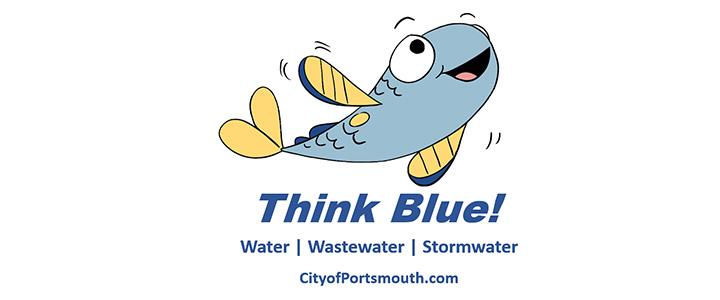
The City of Portsmouth's Water Efficiency Efforts
The City of Portsmouth’s water system managers recognized over 100 years ago that good data was necessary to account for their water balance by becoming one of the first water systems in New Hampshire to meter all of their customers. Since then, these efforts have expanded to include water conservation retrofit kits, tiered water rates, radio-read metering, monthly billing, leak detection, water main replacements and water efficiency rebates, together with expanded customer outreach.
Following recommendations from its 2006 Water and Sewer Rate Study, the City implemented inclining block rates. Customers using over 7,500 gallons per month are charged 20% more for water and 10% more for sewer. This generally impacts only the larger customers in the system, as most customers use approximately 5,000 gallons per month.
In 2008, the City began offering free water conservation retrofit kits to their residential customers. The kits included low-flow faucet aerators, a low-flow showerhead, a toilet tank bladder to reduce water usage per flush in higher flow toilets, leak detection tablets and other water-saving information. This program proved to be quite successful with over 1,750 customers participating.
The City embarked on a water meter reading system upgrade in 2010. By 2012, nearly all of the system’s customer meters had been upgraded to a fixed automatic radio read system (AMR) that enables water system staff to monitor daily consumption. If the system detects high usage, staff can contact customers to inform them that they might have a leak. Most often, it’s a toilet valve that isn’t sealing properly. An average of 500 customers a year are given these notices. The upgrade also made it easier for the City to go from billing customers every four months (three times a year) to monthly. Customer bills also include a graphic showing 12 months of consumption, which provides quick feedback on water usage trends.
In 2013, NHDES awarded the water system a leak detection survey grant to survey the entire Pease portion of the system, consisting of 33 miles of water main. This survey revealed two small leaks in the water mains and one leaking service line. These leaks were quickly fixed. Since then, the City has continued to utilize the same subcontractor to periodically survey the entire Portsmouth water distribution system. Operations staff note that by finding leaks in the system early, problems can be detected before they become larger main breaks.
In addition to finding leaks on existing water system infrastructure, the City has replaced nearly 45 miles of water main in the last 20 years, or about 25% of the system. These newer pipes often replaced existing pipes that had a history of leaks and main breaks. As the following graphic shows, all of these efforts have helped improve the water system’s overall water balance:
Production versus Sales and Non-Revenue Trend (MGD)

In 2014, the City became a member of the EPA’s WaterSense program, which provides information about water efficiency. In 2017, as part of instituting a third-tier rate for irrigation customers, the City adopted an ordinance that requires new systems be designed and installed by an EPA WaterSense Certified Irrigator, ensuring that irrigation systems use water in an efficient manner.
In 2015, as part of the budget process, staff proposed to City Council that the City start incentivizing the change out of inefficient toilets and washing machines by providing rebates. The Council approved the program that provides $100 for customers replacing a toilet with a qualifying low-flow model and $150 for qualifying high efficiency washing machines. The City was the first, and as of this writing, the only public water system in New Hampshire to offer these rebates. By 2022, over 1,500 such rebates have been issued, saving an estimated 50,000 gallons of water a day.
The City began its “Think Blue!” campaign in 2020. This effort encourages residents and landowners to "Think Blue, What Can You Do” regarding water, wastewater and stormwater. Included in this outreach is information about source water protection and steps individuals can take every day to be efficient with their water use.
Many ask: “Why spend time reducing water usage when you make money by selling water?” The answer is that water efficiency investments are less expensive than locating, permitting, constructing and treating new water supplies. These initiatives also provide an opportunity for water systems to build partnerships with their customers in the long-term preservation of our valuable water resources. These efforts also contribute to Portsmouth's commitment and desire to become more sustainable as an eco-municipality.




